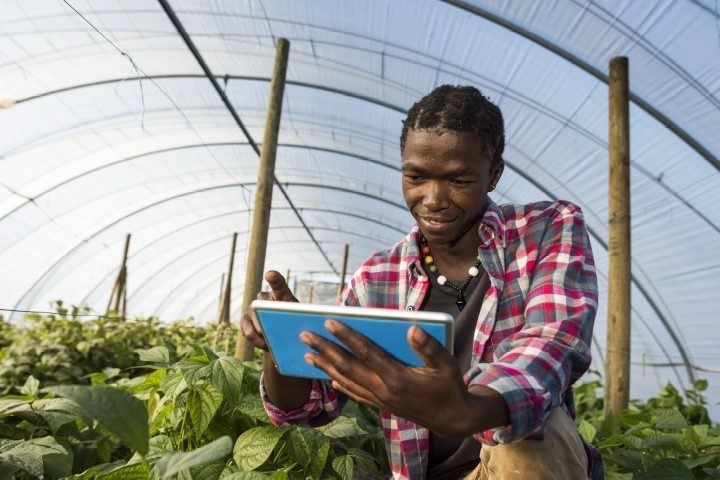
The Bill and Melinda Gates Foundation is behind two highly funded initiatives in the third world — one aimed at transforming agriculture in Africa and the other with the goal of advancing “gender equity.” The former, however, is taking heat for its apparent failure to produce the intended results after 15 years.
The Gates-led Alliance for a Green Revolution in Africa (AGRA) was supposed to increase incomes and food security for millions of smallholder farmers. But according to an independent evaluation by consulting firm Mathematica, there is no evidence of progress toward these goals.
The evaluation was financed by the Gates Foundation on behalf of AGRA’s top donors, including the Rockefeller Foundation and government agencies in Germany, the United States, and the U.K.
The review of AGRA’s core strategy, the Partnership Inclusive Agricultural Transformation in Africa (PIATA), is not a comprehensive one, looking only at five years, excluding many of the program’s target countries, and omitting details on key metrics. Nevertheless, the report did not put AGRA in a good light.
U.S. Right to Know notes:
Among the details that were reported: Yields for maize (the most heavily subsidized crop) increased in just three countries, Ethiopia, Ghana and Nigeria, but not in Tanzania, Burkina Faso or Kenya, as a result of PIATA. Only one country (Burkina Faso) shows evidence of increased farmer incomes related to PIATA. Few details are provided about the size or scope of these impacts.
The “mixed results” for farmer outcomes, the report notes, “likely reflect remaining farmer constraints in access to affordable inputs and output markets, as well as low per-farmer investment levels. These findings suggest that AGRA did not meet its headline goal of increased incomes and food security for 9 million smallholders, despite reaching over 10 million smallholders.”
In a formal response, AGRA countered that the finding is “an expected outcome and a true reflection of the realities that farmers, AGRA, and other institutions that support farmers today live with daily.”
This is in contrast to previous language from AGRA, in which the group promised it would “double yields and incomes for 30 million farming households by 2020.” The failure to live up to that promise comes despite AGRA having raised over $1 billion, two-thirds of it from the Gates Foundation.
The evaluators also pointed to deficiencies in AGRA’s monitoring and reporting of data, decrying it as “not suited for rigorous impact analysis.”
The failings of AGRA are similar to those of the Gates Foundation’s effort to “save American schools.” According to a 2016 evaluation by the think tank RAND, that seven-year, $500 million initiative designed and partly funded by the Gates Foundation “failed to produce the desired dramatic improvement in outcomes across all years.”
AGRA is based in Kenya and is registered as a tax-exempt nonprofit in the United States. It encourages African countries to pass business-friendly policies and scale up markets for patented seeds, fossil-fuel based fertilizers, and other industrial inputs the group claims are necessary to ramp up food production.
Critics of AGRA say the organization’s strategies “continue to impoverish smallholder farmers” by “promoting green revolution technologies that do not improve [African] soils.” They also are concerned with AGRA’s promotion of seed privatization legislation, which creates penalties for open-source seed sharing — which detractors say would hurt small-scale farmers while benefiting large corporations.
“Not only does the corporatization of seed undermine existing indigenous knowledge systems regarding seed diversity and multi-cropping,” wrote Africa-based faith leaders Gabriel Manyangadze and Francesca de Gasparis in Business Daily last year, “but more insidiously, it centralizes control of production systems, disempowering and reducing the resilience of small-scale farmers who rely on informal trade, historical and cultural knowledge in addition to their unique understanding of their ecological landscapes.”
The Gates Foundation is also tied to Co-Impact, a collaborative philanthropy that in turn launched The Gender Fund, which seeks to raise $1 billion over the next decade to advance gender equity, women in leadership, and other social causes in Africa, Asia, and Latin America.
“The mission of the Gender Fund is to deliver on the ambition of a world where systems and societies are just and inclusive, and where all women have the opportunity to exercise power, agency, and leadership at all levels,” Olivia Leland, founder and CEO of Co-Impact, said when announcing the launch last week.
Leland worked with Bill and Melinda Gates and Warren Buffet as the founding director of the Giving Pledge. Co-Impact had an initial funding of $500 million and announced its first round of five-year grants of more than $80 million to five nonprofits in January 2019.
The Gender Fund was ostensibly created in response to widening gender inequality during Covid-19.
“By partnering with Co-Impact, we’re able to identify programs that address the barriers, blocking women from reaching their full potential as leaders,” Melinda Gates said. “This is our once in a generation chance to rebuild our systems to finally work for women and girls.”



